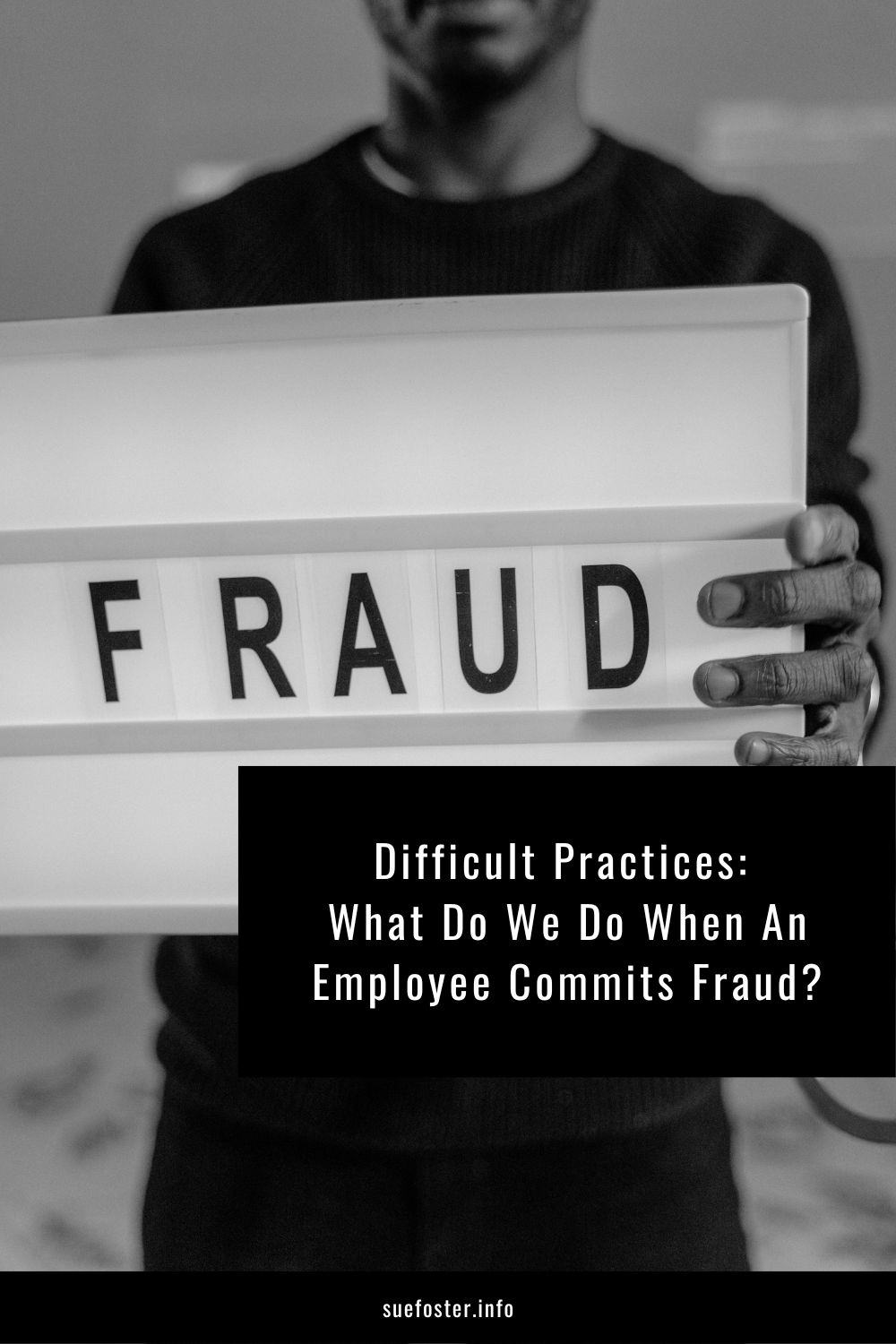Trust is a vital commodity when building your team, and if you’ve gone through a lengthy hiring process, either to get remote workers that truly align with your vision of the business, or you are in one place and you’ve got a solid team that you know can deliver results, finding out that an employee has committed fraud is a major kick in the teeth.
When an employee commits fraud, the first thing we can feel is stupid, and forever kick ourselves. But when we uncover employee fraud, we need to stick to a strict process. So what do we do when we’ve caught a whiff of an employee committing fraudulent acts?

What is Employee Fraud?
Employee fraud, also known as internal fraud or occupational fraud, refers to situations where an employee abuses their position within a company for personal gain, causing financial or other losses for the company.
This can take many forms, including but not limited to:
Asset Misappropriation
This is the most common type of employee fraud. It involves the employee stealing or misusing the company’s resources. Examples include skimming cash, submitting false expense reports, stealing company assets like equipment or inventory, and payroll fraud.
Corruption
This type of fraud involves an employee misusing their position to gain personal benefits, often in violation of their duty to the employer. Examples include bribery, extortion, and conflicts of interest.
Financial Statement Fraud
While less common, this type of fraud can be particularly devastating. It involves an employee intentionally misstating or omitting information in the company’s financial reports to create a false impression of the company’s financial performance. Examples include revenue recognition fraud, overstatement of assets, and understatement of liabilities.
Preventing and detecting employee fraud involves implementing strong internal controls, promoting ethical company culture, conducting regular audits and fraud risk assessments, and encouraging reporting of suspicious behaviour.
Gathering The Evidence
This could be the longest part of the process. It’s important to know that you are on the right side of the law. There are numerous business legal resources at your disposal that you can make use of.
It’s important to conduct a thorough investigation when gathering evidence because you need to make sure that you have enough information, either by catching the person in the act or using the information to bolster your case against the person if they deny it.
Various processes can help you. It’s not just about security cameras, but there is digital fingerprinting software that can help. But when gathering your information, consider observing the person for a long time, just so you know you are in the right, legally speaking. You must also remember that the investigation has to be discreet, for the benefit of morale within the business.
Dealing With The Employee
Once you’re satisfied that you’ve gathered enough evidence this is when you can either terminate their contract immediately, but if there is a potential for more fraudulent activities despite the perpetrator leaving the company, it might be important to get more information out of them before letting them go.
Also, based on their service record, you may want to give them the option to resign quietly. But when it’s common knowledge that an employee has committed a fraudulent act, you’ve got to remember to set an example. This may very well mean terminating the person’s contract.
Learning From The Experience
Trust is a vital commodity, but when someone has committed a fraudulent act, we can learn from our mistakes. Perhaps we were too trusting in people or we didn’t do enough during the hiring process. Whatever it is, we must learn from our mistakes.
We have to remember that trust is crucial, but we can’t walk around with our defences up either. When an employee commits fraud, it’s necessary to find out why they did it in the first place.
Sometimes they are that sort of person, or it can come from a desperate place. And this can help fuel our knowledge going forward. It’s hurtful when someone we’ve trusted has knowingly abused this. But as we develop our business, improve our security, we must also remember the importance of finding the right people.
If an employee commits fraud, we have to remember that justice will be served, and it shouldn’t be taken personally, even though it feels very personal.
Further Reading
Protect Your Business From Employee Fraud – Ali Asadi has penned an insightful publication on the impact of employee fraud on contemporary businesses.
Executive Roadmap to Fraud Prevention and Internal Control – Step-by-step, expert advice on building a top-tier fraud prevention and compliance plan in any business setting.


